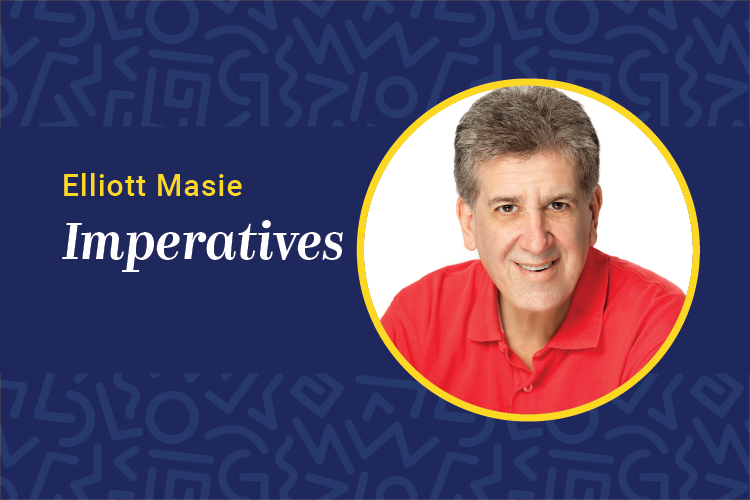I've had two questions swirling in my head over the past several years: Is a career in learning intentional and planned? And, what triggered your role in the learning field? To find the answers, I have been conducting a personal survey by chatting with hundreds of learning professionals at global, national and local events.
Their stories highlight the random and often circuitous routes learning folks have taken. Here are a few of the most common responses:
Subject-matter experts and on-the-job training:A large number of learning colleagues started out in operational roles such as customer service, sales, engineering or health care. Excellence and availability led them to serve as on-the-job resources for others and escalated into informal subject-matter-expert, or SME, roles, that evolved into formal learning roles. Most have no learning certifications but have been developed by their organizations.
Educator into corporate trainer:Although the total number of classroom trainers in corporate education is decreasing because of the rise of digital assets, many learning colleagues teaching backgrounds. Some taught K-12 or higher-education. Others were dedicated teachers in their religions, athletic clubs or other avocations; managers noticed their passion and skill and learning opportunities followed.
Techie does learning:Other learning leaders came from a tech background. Many evolved into e-learning developers from graphic design or programming roles. IT geeks worked on learning management systems or supported virtual classroom platforms and were snatched up by learning departments. As learning became more technical, techies were recruited to the learning field.
HR/talent — to and from learning:The most common background connector was human resources. Many learning colleagues started out as HR generalists and then evolved into learning roles. And, the process continues as many learning professionals evolve toward talent and HR roles as their next steps.
Writers write learning:I continue to meet lifelong writers who bring their competency in writing to authoring, editing or curating content in workplace learning. Some of the younger learning professionals I met started as bloggers or social media “passion-istas,” and now play key roles in collaborative learning or content formatting.
Video experts into learning experts:As workplace video, and user-created video content in particular, has grown, a number of learning organizations haverecruited colleagues with videography expertise. Recently, I met four learning professionals who worked in corporate communications and were brought over to play key roles in learning and development.
Mommy, I want to be an instructional designer: Few reported a childhood desire to work in learning. Learning professional is not a role we see on TV shows growing up, and rarely do our aunts or uncles share stories with us as kids about the power of Experience API for content-sharing.
Formal degrees in learning:There is also a slice of our field that came through bachelor’s, master’s or doctoral programs in learning. The most common degree is a master’s, often in instructional design, that was earned after years of workplace experience. Others come through programs focusing on psychology or coaching, or through an MBA with a performance focus.
Before retirement: Learning is often the last role for an individual within an organization. In the worst situations, the person retiring in one or two years might be housed in a senior learning position before departure. Sadly, I know of a few CLO roles that were considered “safe storage” positions. But, on the positive side, what a powerful role these folks can play as mentors, coaches or SMEs, building on lifetimes of experience.
We in learning have often experienced pretty random career paths. And, as technology, learningassumptions and user-created content increase, the randomness will continue. A role in learning may just be a chapter in one’s career after which he or she moves on to other positions with a continuing passion for workplace development.
Whatever the reason someone adopts a learning role, no matter how random the career path might be, we should build a better brand for these kinds of careers and even degrees to support the skills, competencies and performance of these organizational leaders. Our colleagues, our companies and even our countries will need learning professionals to meet the challenges related to continual change.















